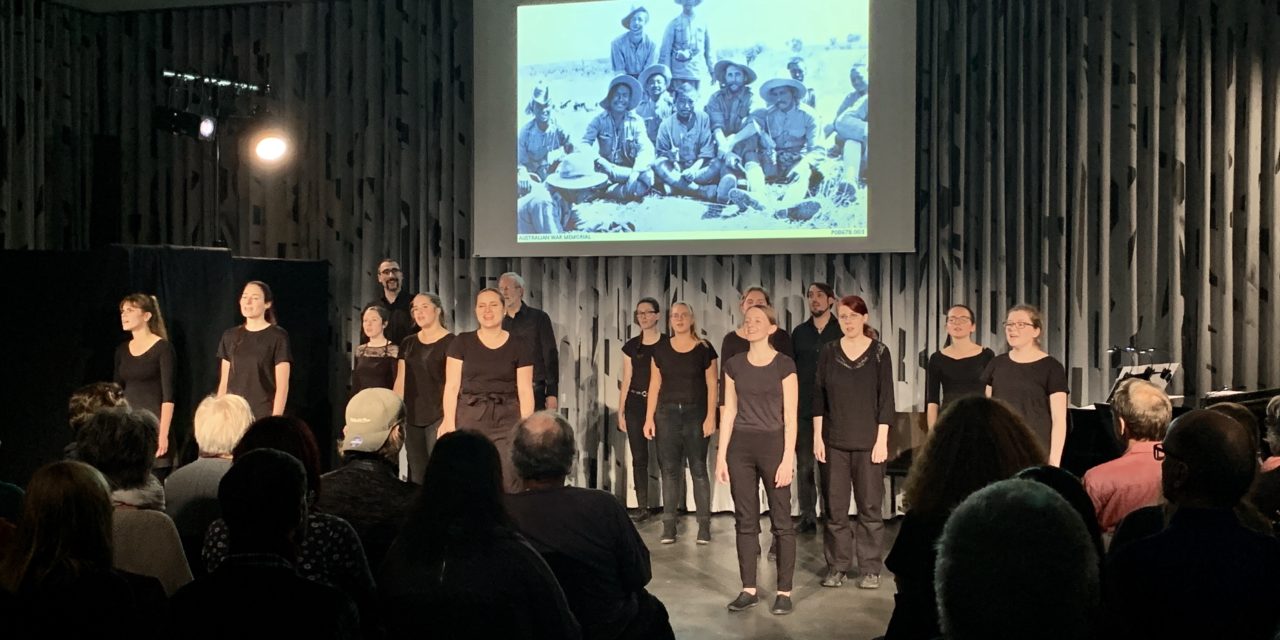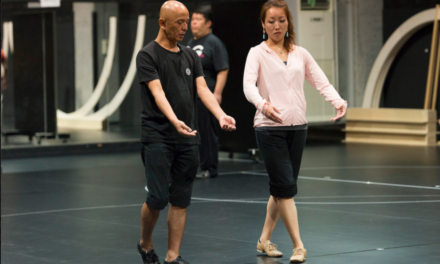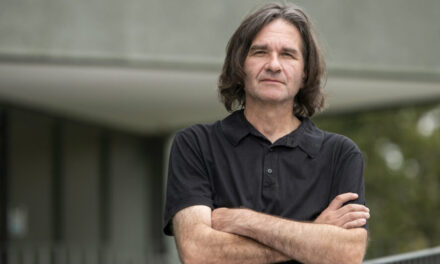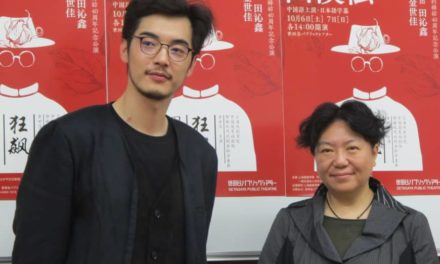How do you conceptualize a memorial that embodies the enormity of a contingency such as World War I? A War To End All Wars, is a 90-minute performance directed by Floriane Ratdke, a student of Theatre Science at the University of Bern, Switzerland. Radtke explained that the entire project and performance developed out of an Interdisciplinary Seminar at the university on WW1. She further clarified that,
“It was the wish of most participants to combine everything into one big exhibition, and as much of the research included poems, contemporary texts, and songs, we decided, the ideal way to perform and combine everything would be in a performance in which we would summarise the events and participants of the great war.”
On August 14, 1914, British writer H.G Wells wrote an article titled The War That Will End War, published in The Daily News. A part of it read:
“We have not sought this reckoning, we have done our utmost to avoid it, but now that it has been forced upon us it is imperative that it should be a thorough reckoning….This, the greatest of all wars, is not just another war—it is the last war!”
One hundred years later, many wars have been fought and still keep getting fought. On November 11, 1918, the armistice in Compiègne, on the western front, ended a war that was said to be “The War to End All Wars.”
The Theater Times caught up with two of the organizers, Dr. Franz Andres Morrissey, from the department of English and Dr. Daniel Marc Segesser of the Department of History at the University of Bern. They both hold the opinion that the memory of the bloody battle one hundred years ago is also essential for today’s generation: at the same age as today’s students, many people lost their lives or returned home as war veterans.
From varied perspectives, the “First World War” indeed remains a phenomenon to this day, and what the performance has achieved is portray a web of historical connections, an insight into the social conditions and highlights relations with cultural aspects of those years to the contemporary. Hence the constellation of interests from departments in the Faculty of Philosophy and History that resulted in a research initiative with their students.
Drs. Morrissey and Segesser took time out to answer specific questions
THE THEATRE TIMES (TTT): What were the standards you had for the curation/selection of the performance pieces?
DANIEL MARC SEGESSER (DMS): The performance and the accompanying program was based on research done by our students, who decided by themselves, what topics concerning research they wanted to focus on. In September, they presented their findings, and then we fitted things together (for the performance, the accompanying program, and the booklet.)
FRANZ ANDRES MORRISSEY (FAM): The project was intended to encourage students to explore a topic in the framework of the historical, political, social, and cultural aspects of this world-changing event, which is ww1. Students were free in the choices of what they wanted to investigate. The rule was that it had to cover at least two disciplines (which were German, Italian, and English in the language and literature subjects, history in terms of documents such as oral history, but also relatively less well known historical events and musicology and theatre studies in terms of cultural aspects of the war. We had two ways of relating the research results, a poster and artifact exhibition that was situated outside the actual performance hall and the performance itself. The selection criteria for both of these was what would be of interest to the public that was not necessarily specialized in the fields concerned and for the “show” what would make an excellent topic to present as a dramatic performance. A student from Theatre Studies created the narrative framework on the basis of the work presented in an exchange seminar after the summer break, which was used for individual research and this was refined in group discussions and tentative performances until we had a story to tell. The story, we felt, could be told effectively if it moved from the end of the war with its disillusionment to the beginning of the war, a period of enthusiastic support for fighting, which in this sequence must have become even more misguided.
TTT: In a 2011 book, The Better Angels Of Our Nature: The Decline Of Violence In History And Its Causes, Steven Pinker suggests that we are living through the most peaceful epoch in human history. What do you think about this claim?
DMS: Peaceful is always a relative term and often linked to the context you live in. It may be that in western Europe war and violence have receded, but even there we have had outbursts of violence (especially against non-European migrants). Looking at the wider world (Syria, Congo, Myanmar to name a few examples) it becomes clear that our epoch is not the most peaceful in human history (if ever there was one). The First World War, which ought to have worked as a “War to End All Wars” did not attain the goals set by people like Woodrow Wilson, and as you heard in the performance it happened “again,” “again,” “again,” and “again.”
FAM: I am not sure I buy Pinker’s assessment. In purely statistical terms he may be absolutely correct, but my unease is on two levels: on the one hand I can’t help thinking that conflicts these days are fought with so much more devastating weapons and with so much ruthlessness that even if in terms of relative numbers we may have more relative peace, the virulence of the conflicts has not decreased. If anything it seems more unforgiving and more aimed at the weakest members of society in ways that strike me as more insidious than ever before; my main upset in this context is the instrumentalization of children (as child soldiers) and the horrendous and relentless sexual violence against women. This links to my second level of unease. I find it unbelievably utilitarian if not downright cynical in a world where smallish wars rage in so many places, albeit overall there are perhaps fewer large-scale conflicts ravaging larger areas of past wars, those human beings whose existences are blighted by smaller scale wars are no less subject to devastation as the victims of those more large-scale conflicts; there is no consolation in losing your livelihood, your family, or your life in a smaller conflict and to ignore that suffering or to dismiss in an overall seemingly more peaceful seeming world strikes me as smug, cynical, and coldly calculating.
TTT: World War I was not as mediatized as World War II and many people hold the opinion that its memories are fading away along with the two generations that were involved in it…however, then some empires have been torn, and the effects still linger to this day. Would you say many kinds of literature have adequately addressed its consequences?
DMS: I would not really agree that World War I was not mediatized. It was just done in another way. For example, as movies just started to become important at the time, other forms of mediatization such as music halls did a great deal to pass on the messages of those in power. As to memory this is of course always something, which is related to the fact, whether there are still people alive from that epoch, which is still the case in regard to World War II, but not World War I. As the centenary has, however, shown, there is a memory boom in regard to the First World War all over the world. While this was very visible just recently in Paris (Nov. 11, 2018) and France as such, there is a lot of research underway today in countries like India, China, Australia, or even some African countries, especially in West-Africa. Those whose contribution had not been fully valued in 1918 are today at least a field of interest as seen in the poster in accompanying program as further information well as in the booklet.
FAM: I am aware that time has passed since both World Wars ended, a hundred years since the First one, as a matter of fact. And I am also aware that last veteran of World War 1, Harry Patch, died nine years ago. It is now the veterans of WW2 who are old, frail, and dying of old age, thus removing the war from “living” memory. But I am acutely aware of the need to remember what happened in both wars, what made the possible and what made them so deadly. As Bertrand Russel indicated, it may be sweet and honorable to die for your fatherland, but what about killing for it. And if for fatherland you read orthodoxy or fundamentalism, you see just how vital it is that we remember the insidiousness of this appeal to some kind of honor that is directly and inextricably linked with upholding that honor and being prepared to kill for it. I am a deeply committed pacifist, but also cannot possibly imagine that I could ever kill in the name of an ideology, a duty to an orthodoxy or to a group membership of any kind. I am also profoundly aware of what always precedes the process of going out to kill adversaries: the way in which these adversaries are dehumanized to make such killings palatable. From the attempted extermination of the Hereros, the Armenian genocide, the Shoa, the wars against the communists in Indochina, Pol Pot, ethnic cleansing in the Balkans, the extermination of the Tutsis in Rwanda, what has always happened first was that the adversaries were described as vermin, as bugs to be squashed as parasites. This discourse persists, not always as obvious as this, as it did then. This is why we need to remember, and why a hundred years later or seventy years make no difference. We need to remember, and literature can play an important part here because it can take on a view that history may not be able to as a discipline.
TTT: Do you consider this memorial a kind of education in itself?
DMS: The performance, the accompanying program, as well as the booklet to our mind should have given an answer to this question as such. Of course, more can always be done, but we think that what we have done (especially the booklet) can work as a basis for teaching in the future at different levels.
FAM: Absolutely, otherwise I would not be doing this and getting students to approach the topic, not as objective and distant researchers but to encourage them to get emotionally involved, to engage with a topic beyond an academic approach, but also to find ways of communicating what they have found to a wider audience.
TTT: On Switzerland’s role, which is even less remembered: Between 1916 and 1918, Switzerland accepted 68,000 sick and injured soldiers: French and German as well as British, with the help of the Red Cross, they were transferred to Swiss mountain villages to recover, and to sit out the war. That is also something to remember! Do you have any commentaries on that?
DMS: The role of Switzerland in the First World War has recently been researched to quite some extent. I want to point you to the two recent books by Cédric Cotter: (S’) Aider Pour Survivre Et Anja Huber: Fremdsein Im Krieg, both 2018 and both available in libraries. They discuss the issue quite in some detail. You can also find some information in Anja Huber’s article in 1914-1918 online. On Russian soldiers in Switzerland, you might also want to look at the book Unerwünschte Gäster by Thomas Bürgisser (2006).
FAM: Switzerland has been lucky to remain unscorched by the conflagrations of WW1 and WW2. They may have done some good to human beings less fortunate than themselves, but I am concerned that this is dealt with in ways that create the wrong impression: Swiss neutrality has been a wise “career move” and it is largely responsible for the relative affluence that the country has experienced since the wars, relative because it has not been and is not fairly shared. We could have done more, especially in WW2 regarding the persecution of Jews. The “the boat is full” rhetoric is a shameful chapter in Swiss history, and the present politics so strongly shaped by the right-wing nationalists, apart from veering onto the dehumanizing discourse mentioned above is only too reminiscent of this. It is the same circles that see the occident as Christian while being deeply un-Christian in the me-first driven xenophobia.
This post was written by the author in their personal capacity.The opinions expressed in this article are the author’s own and do not reflect the view of The Theatre Times, their staff or collaborators.
This post was written by Zainabu Jallo.
The views expressed here belong to the author and do not necessarily reflect our views and opinions.


















